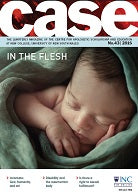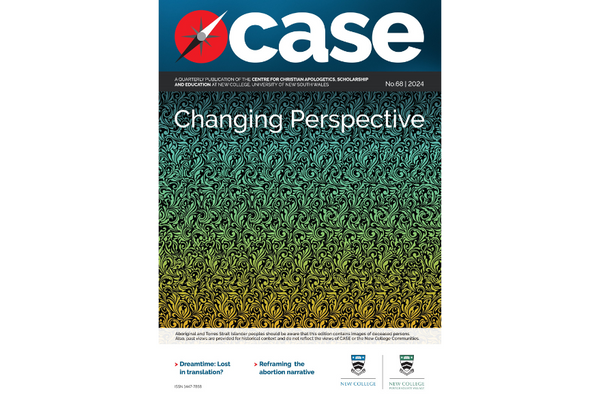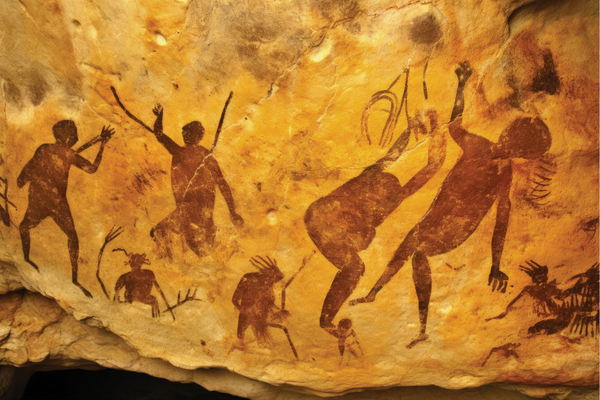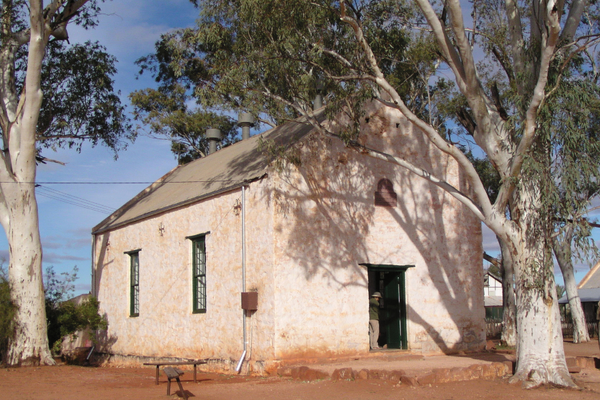In The Flesh: Introduction

Trevor Cairney
To be human is to be embodied.
Many religious and spiritual traditions see the flesh as something to be overcome or transcended; an illusion to be seen through; a temptation to be overcome; a temporary home for an immaterial being who may in the past even have been an animal - and may be again in the future.
Christianity, too, has sometimes been guilty of demoting the body and denying that matter matters. When Aquinas married Aristotelian philosophy to Christian theology in the 13th century, he claimed it was the intellect that made us properly human. Being bound to a body was a limitation that tempted us to chase lesser goods, and forced us to know things through the senses instead of directly perceiving their essences as God does. Aquinas' vision of heaven or 'blessedness' was an eternal, intellectual contemplation of the divine essence. This vision, which leaves little place for the body, has bequeathed to Christianity a tradition of an immaterial afterlife. In popular Christian thought to this day, this airy future has tended to supplant the New Testament hope of a resurrected body which will physically inhabit a new creation.
It is not surprising that this view has been difficult to quash. There are many New Testament passages that connect flesh with sin, Romans 8 being one of the clearest:
Those who live according to the flesh have their minds set on what the flesh desires; but those who live in accordance with the Spirit have their minds set on what the Spirit desires. (Rom 8:5)
And others that suggest the body has no place in the Kingdom of God:
I declare to you, brothers and sisters, that flesh and blood cannot inherit the kingdom of God, nor does the perishable inherit the imperishable. (1 Cor 15:50)
Yet a closer examination reveals that the 'flesh' these texts leave behind is the fallen, mortal body - not embodiment per se. Yes, we will receive bodies that are different to those we have now, but we will still be embodied:
The body that is sown is perishable, it is raise imperishable; it is sown in dishonour, it is raised in glory; it is sown in weakness, it is raised in power; it is sown in a natural body, it is raised a spiritual body. (1 Cor 15:42-44)
God himself took on flesh in the person of Jesus - something we particularly remember at Christmas time - and in his resurrection, he remains embodied.
In 'Earthy Epiphanies' Trevor Hart draws out the interconnections between our embodiment, Christ's incarnation and the materiality of art. The article in this issue is based on the second of Hart's 2015 New College Lectures, in which he considered the inseparability of meaning and matter in works of art and its parallels in christology.
The resurrection body, with its escape from death and decay, is something Christian long for. Yet while we remain in the flesh in this era, we will still face death and decay, and two of our articles address this. Vaughan Oliffe looks at the particular hopes and concerns regarding this transformation from the perspective of people with disabilities. John Wyatt, Emeritus Professor of Neonatal Paediatrics at University College London, shares his insights and stories of those suffer, yet find redemption and hope where we might expect despair. For in Christ we have 'the knowledge that suffering is not the end of the story'.
These themes - creativity, embodiment and brokenness- are also expressed beautifully and movingly in the poetry of Peter Stiles, whose collection of verse, Trumped by Grace, has recently been published. (1)
Kamal Weerakoon scrutinises the meeting ground of Human Rights legislation and human sexuality, asking whether there is such a thing as a right to sexual fulfillment.
This exploration of embodiment is completed with Steve Brown's reflections on the church as the body of Christ, and what this means for its members.
We trust that you will find there contributions helpful as you approach Christmas - a time when we remember how our God entered the world as a child - and as we also contemplate our own hoped-for eternal future with Him.
ENDNOTE
(1) Trumped by Grace (Poetica Christi Press, December 2015). This collection includes the poems on pages 10,20-21, and the back cover of this issue of Case Magazine. For information on availability, contact Peter Stiles at peter.stiles@wima.edu.au.
Leave a comment
Comments will be approved before showing up.



